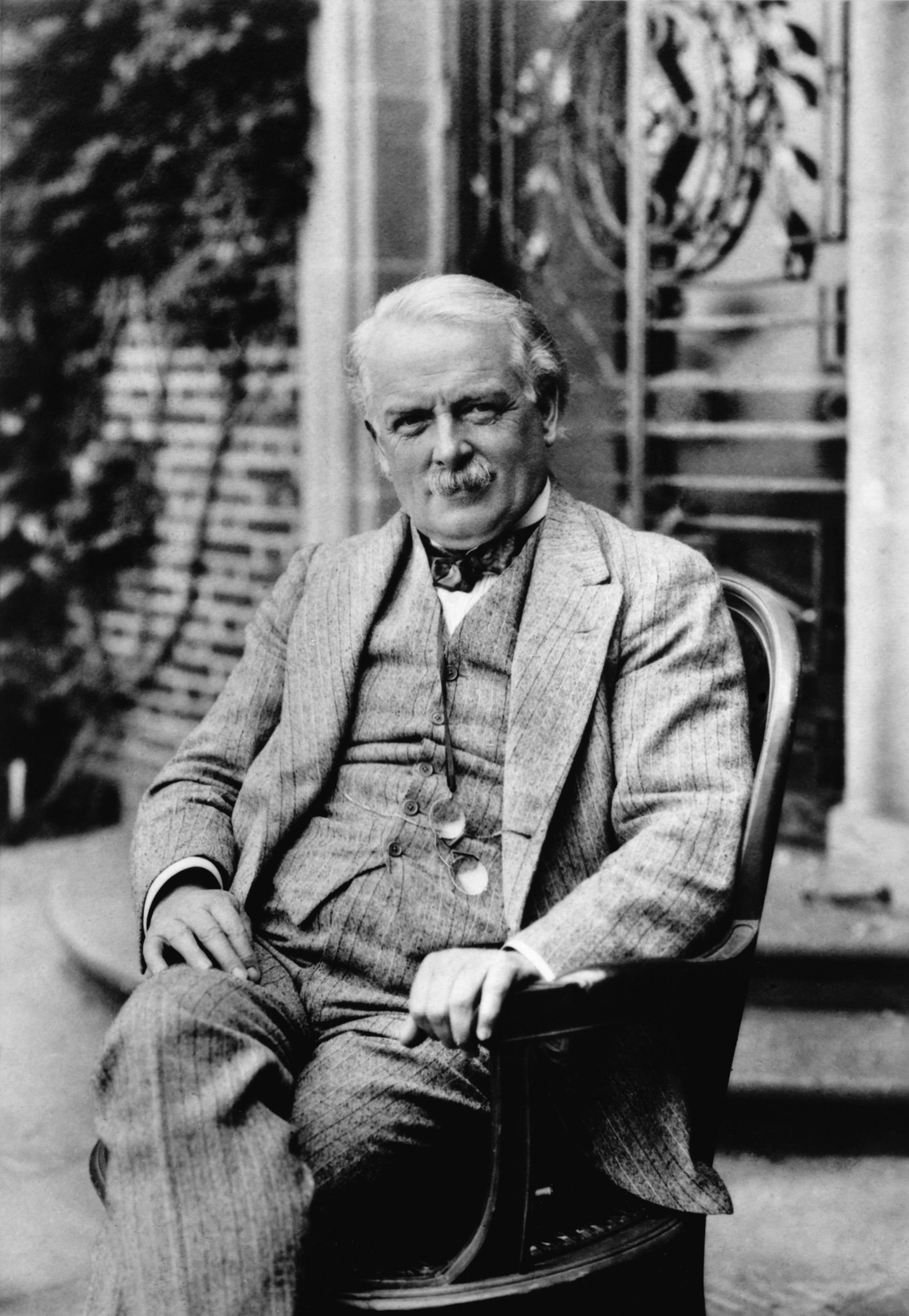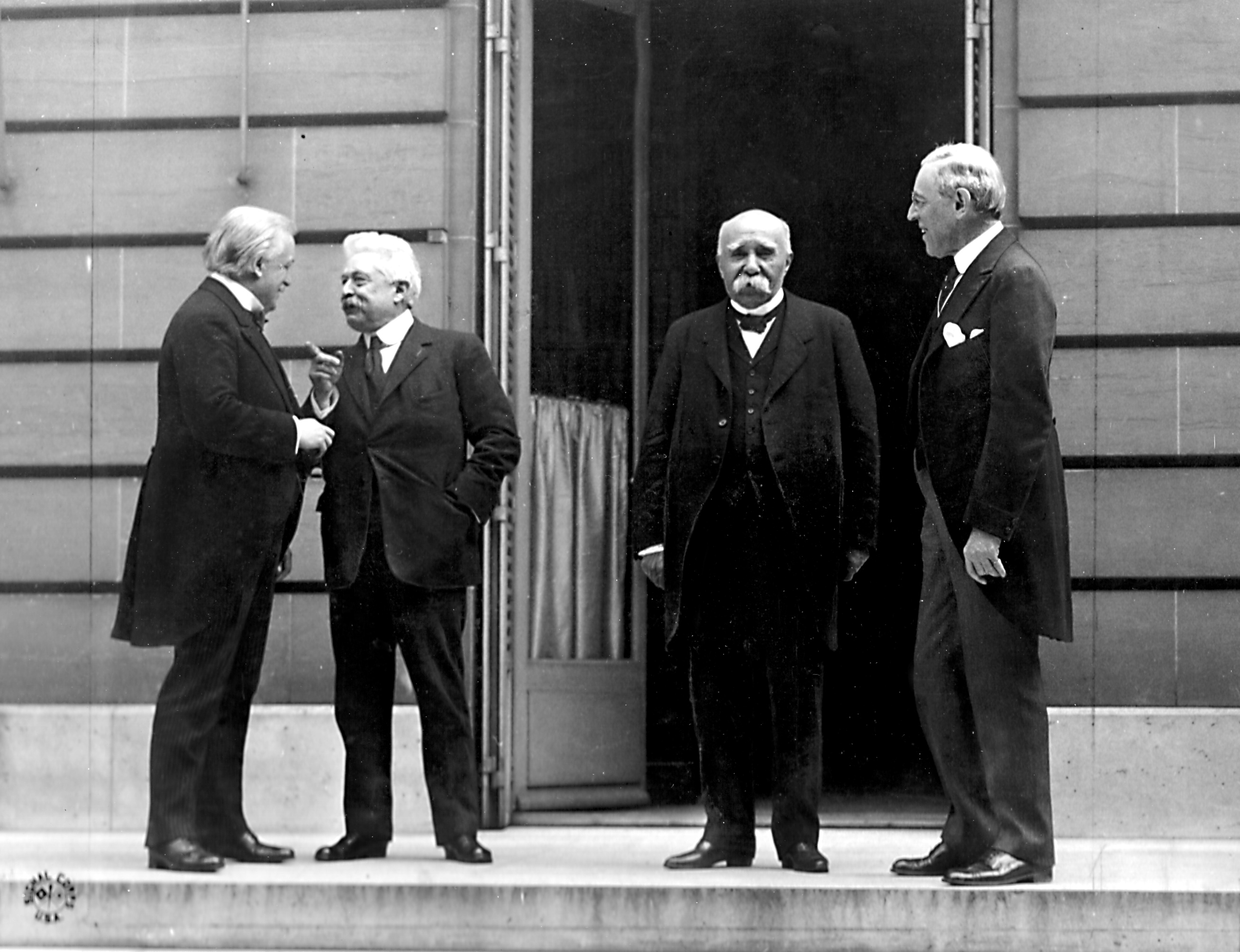Lloyd George, David (1863-1945), a British Liberal Party leader, served as prime minister during the last half of World War I (1914-1918). He was also prominent in helping to draft the Treaty of Versailles, which ended the war (see Versailles, Treaty of ). He led the British delegation at the conference that drew up the treaty. Lloyd George was active in British politics until his death.
Early career.
Lloyd George was born of Welsh parents in Manchester, England, on Jan. 17, 1863. His father died when David was a year old. His mother took him to Llanystumdwy in Caernarvonshire (now Gwynedd), Wales. There he grew up in the home of his uncle, Richard Lloyd, a shoemaker and a Baptist minister. He was reared in an atmosphere of hostility to the landed aristocracy and the Church of England. He was apprenticed to a law firm at 16 and began to practice law at 21.

Lloyd George early associated himself with the Liberal Party. In 1890, on a platform of comprehensive social reform for Wales, he was elected to Parliament for the Caernarvon Boroughs. He represented this constituency continuously for 55 years. He soon established a reputation as a “radical,” and became widely known through his attacks on the government’s policy in South Africa before and during the Anglo-Boer War of 1899-1902.
When the Liberals returned to power in 1905, Lloyd George became president of the Board of Trade. From 1908 to 1915, he served as chancellor of the exchequer. He sponsored the Old Age Pension Act of 1908 and the National Insurance Act of 1911. His “People’s Budget” of 1909 introduced a tax on “unearned income” and greatly increased land and inheritance taxes. The Conservative House of Lords rejected this budget. This caused a constitutional crisis with the House of Commons which ended in victory for Lloyd George and his party. The power to veto financial legislation was taken away from the House of Lords.
Prime minister.
The coming of war in 1914 changed Lloyd George from a pacifist to a staunch supporter of the war against Germany. As minister of munitions in 1915, he ended shortages in ammunition. In July 1916, he succeeded Lord Kitchener as secretary of war, and in December 1916, he replaced Herbert Asquith as prime minister of a coalition cabinet. Lloyd George is generally recognized as one of the United Kingdom’s great war leaders. His leadership strengthened civilian morale. At the Paris Peace Conference in 1919, he mediated successfully between the idealism of President Woodrow Wilson and the severe peace terms sought by Premier Georges Clemenceau of France.

An easy electoral victory in December 1918 kept Lloyd George and his coalition government in office. But he did not achieve the economic reconstruction he had promised. His Irish policy led to the formation of the Irish Free State but cost him Conservative support. His pro-Greek policy failed. He resigned in 1922.
The Liberal Party, divided in 1918 between supporters of Lloyd George and Asquith, was reunited in 1923 but could not regain popular support. It soon became a weak third party after a disastrous election in 1924.
Lloyd George tried unsuccessfully to make a comeback with an elaborate program of public works and agricultural reform. He visited Adolf Hitler at Berchtesgaden in 1936 and returned with praise for the German leader. But he soon became a severe critic of appeasement of Hitler. In 1945, shortly before his death, he was created Earl of Dwyfor. He died on March 26, 1945.
See also Liberal Democrats .
